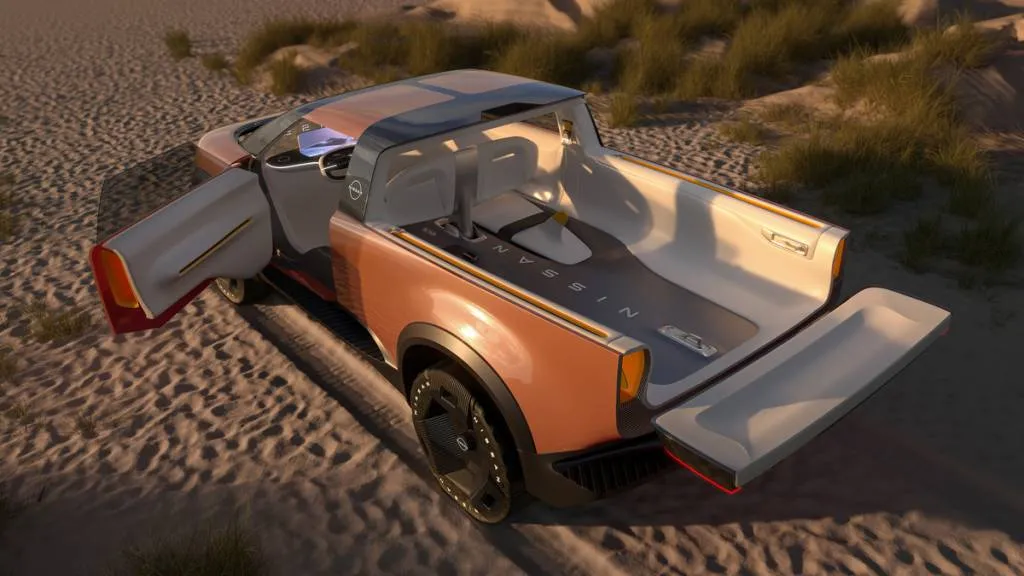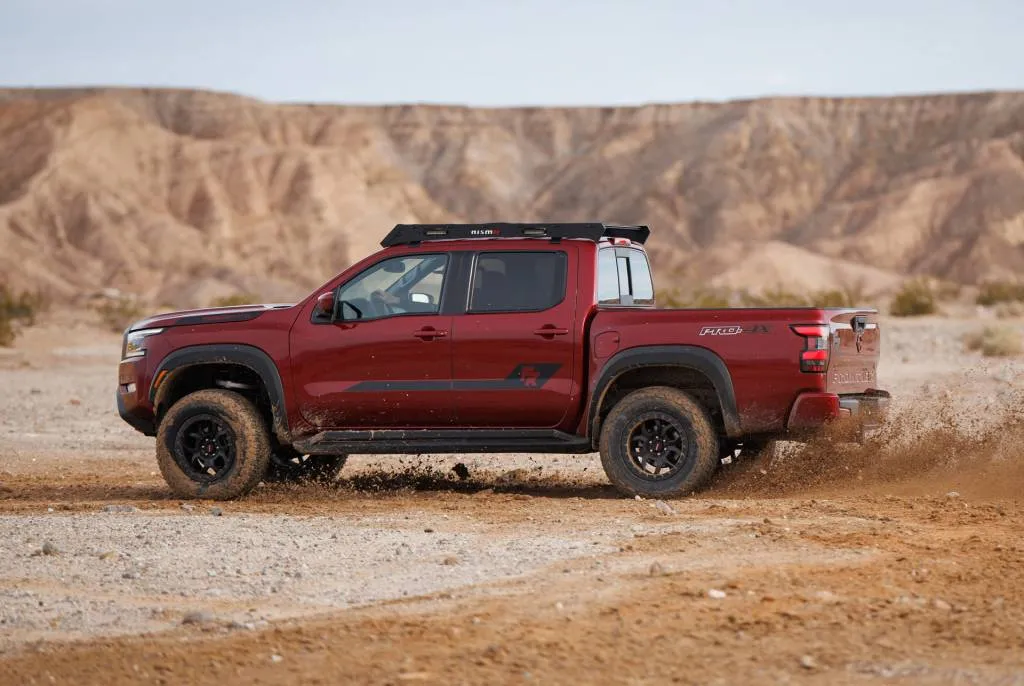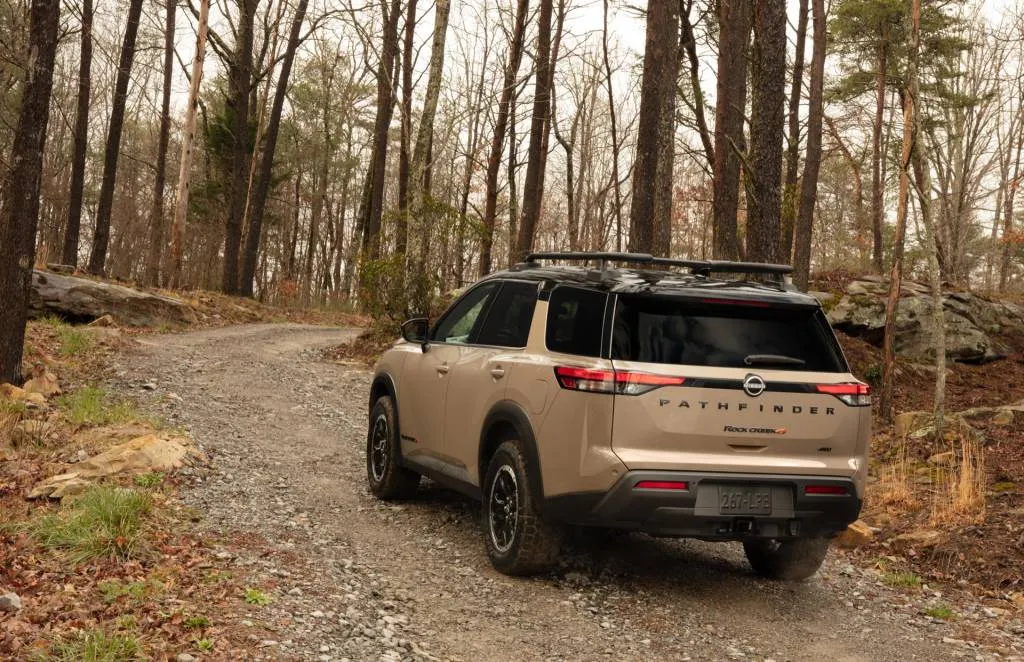Not every automaker’s taking the same strategy when it comes to electrification.
During an interview at the 2024 New York auto show, Nissan North America’s Senior Vice President and Chief Planning Officer Ponz Pandikuthira laid out for Green Car Reports the automaker’s viewpoint on where EVs, PHEVs, and series hybrids make the most sense.
The chat with Pandikuthira took place days after Nissan laid out its plans for hybrids, PHEVs, and a U.S.-bound three-row electric SUV, leading to a clearer vision about which powertrains will show up in which types of vehicles in the near term.

Nissan Surf-Out concept (2021)
Nissan plotting series hybrids
A chunk of Nissan’s electrification strategy lies within its e-Power powertrains, which is the automaker’s marketing speak for a series hybrid. A small combustion engine creates energy to power the electric motor once the battery reaches a particular state of charge. That gas engine acts as a generator only, and there’s no direct mechanical connection between the gas engine and the wheels. Being able to skip the transmission and all that complexity makes it particularly attractive to automakers from a cost standpoint.
Pandikuthira didn’t completely rule out e-Power for a pickup truck, but he said that in a smaller body style pickup, like a Ford Maverick-sized pickup, the series hybrid powertrain could make sense. It would be more of a lifestyle truck aimed at city dwellers and or surfers, like the Nissan Surf-Out concept shown in 2021.
“E-Power is really suited for a vehicle like Kicks and Rogue,” Pandikuthira said—a vehicle that will spend most of its time in urban environments along with stop-and-go traffic, with maybe only 30% of the time being highway driving.
The executive also noted that a series hybrid is not the best during highway usage or at a steady state of 70 or 75 mph. That generator would return poor fuel economy and it wouldn’t be a good towing experience, and he noted that for midsize and full-size trucks, the average pickup driver does a lot of that.
This directly goes against the strategy Stellantis has taken with the 2025 Ram 1500 Ramcharger. While it has a 92-kwh battery pack that can be recharged, when it’s depleted the Ram Charger’s generator is a naturally-aspirated 3.6-liter V-6, which altogether might return about 20 mpg on the highway. That’s not while towing.
2024 Nissan Frontier Forsberg Edition
Nissan: plug-in hybrids need 70 miles of range
Pandikuthira noted that large vehicles, and those spending 70% of their time on the highway, would be better off with a plug-in hybrid powertrain.
“The Nissan Frontier (the automaker’s midsize pickup truck) customer does not want an EV," he said. "What they do want is a plug-in hybrid.” Towing isn’t compromised, he offered, and a plug-in hybrid isn’t as susceptible to the extreme heat and cold challenges that battery-electric vehicles (BEVs) experience with today’s battery technology.
Plug-in hybrids need a minimum of 70 miles of real-world range, according to Pandikuthira. More energy-dense next-generation batteries might help enable that.
On Monday news broke that the next-gen Frontier will get an electric variant and plug-in hybrid while being twinned with a Mitsubishi. Both will be built in Mexico.
Pandikuthira told GCR that the current Frontier wouldn’t easily accept batteries in terms of packaging for a plug-in or battery-electric powertrain. A next-gen truck would be the opportunity as it could be designed from day one to not compromise packaging.
2024 Nissan Pathfinder
Nissan: EVs will take more time
Pandikuthira noted that a lifestyle pickup needs to cost $25,000 to $35,000, maybe topping out at $40,000.
‘Electrifying something in that range and making the cost down affordable is probably at least a few years away,” Pandikuthira said, referring to either a fully electric or e-Power possibility..
It makes more sense to make a battery-electric Pathfinder-sized vehicle, which is a three-row crossover SUV, at this point, according to Pandikuthira. A larger pickup or Pathfinder-sized vehicle could sustain the necessary price to fit an electric powertrain—up to $55,000 or $60,000, he said. It all comes down to deciding which body style to electrify first based on customer need.
“Electrification is still going to manifest," Pandikuthira said. "It’s just a little slower than we thought.”













